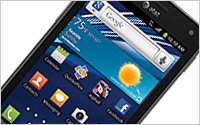Mobile Usage Is Rocketing Search Efforts
- by Gavin O'Malley @mp_gavin, March 28, 2013
 These days, one hears a
lot more about mobile mania than the business of search.
These days, one hears a
lot more about mobile mania than the business of search.
Rather than replacing search, however, the mobile boom has made it more popular than ever.
In fact, for more
than half of all mobile device users, the No. 1 function via their Web browser is search, according to the latest local search-usage study from comScore, Neustar’s Localeze service and agency 15
Miles.
Over the past nine months, the total number of visitors to search navigation sites conducted via mobile devices has jumped by more than 25% -- with local searches playing a
particularly important role, according to the study of some 3,000 users of local business Web search.
Stateside, nearly 86 million people now seek local business information on their
mobile phones, while more than half of those who conduct local business search said they use mobile phones for searching because they are on the move.
On a weekly basis, 56% of those
who use local search sites primarily for local business information use them across all devices, the research partners found.
What’s driving this trend? In large part,
consumers’ lust for new gadgets, said Jeff Beard, senior vice president/GM at Neustar Localeze. “Tablet adoption is growing at a blistering pace,” according to Beard. “It
took smartphones nearly a decade to reach 40 million users, while that number was crossed only two years after the iPad arrived.”
The findings show that the total number of U.S.
searchers on mobile phones grew steadily last year -- from 90.1 million mobile phone visitors to search/navigation sites or apps in March 2012 to 113.1 million in December 2012.
Tablets also grew as a source for online searches, with 19% growth between April 2012 and December 2012.
What are mobile searchers looking for? Both mobile phone and tablet
searchers find accuracy of information to be more important than depth of content, according to the researchers.
Tablet searchers, however, are placing more importance on depth of
content over time, while mobile phone searchers are placing less importance on this measure.
In addition, mobile phone searchers are more likely to cite maps, driving directions and
distance as key information, while tablet searchers are more likely to find consumer reviews and online promotions most helpful.


